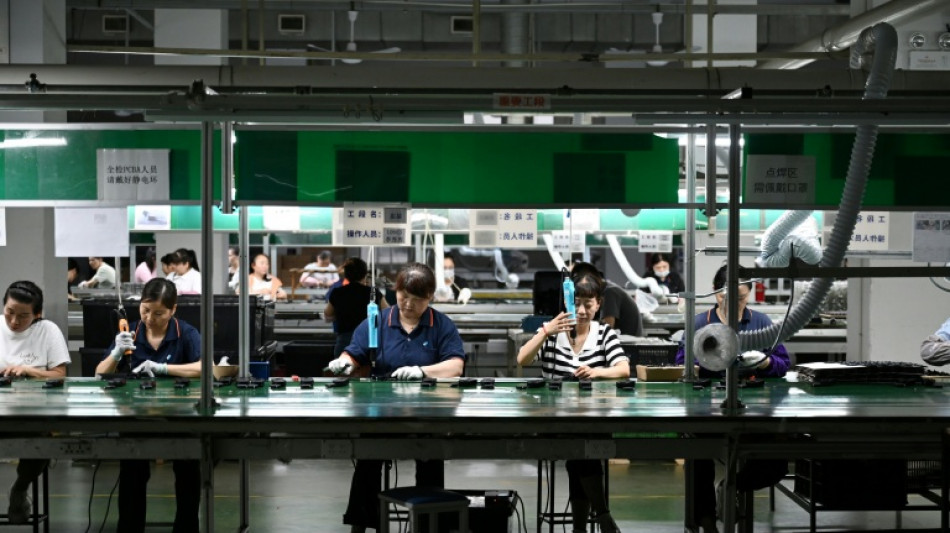
-
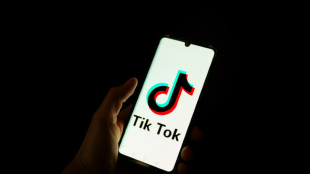 More questions than answers surround Trump's TikTok deal
More questions than answers surround Trump's TikTok deal
-
Iran sanctions look set to return as last-ditch UN push fails
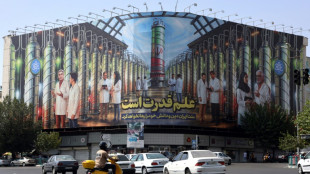
-
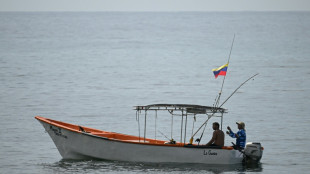 Sitting ducks: Venezuelan fishermen wary of US warships
Sitting ducks: Venezuelan fishermen wary of US warships
-
Nissanka ton in vain as India edge Sri Lanka in Super Over

-
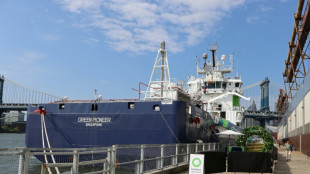 An Aussie tycoon bets billions on cleaning up iron ore giant
An Aussie tycoon bets billions on cleaning up iron ore giant
-
Civil defence says 50 killed in Gaza as Netanyahu vows to 'finish job' against Hamas
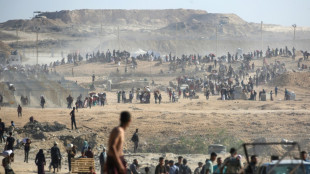
-
 Canada's Corrigan leans on Olympic experience in quest for Women's Rugby World Cup gold
Canada's Corrigan leans on Olympic experience in quest for Women's Rugby World Cup gold
-
Kolisi warns 'resilient' Boks are braced for Puma mauling
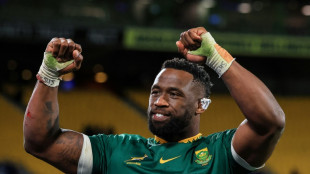
-
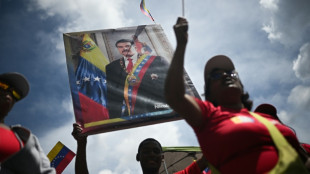 Fearing US invasion, Venezuela to hold emergency drills
Fearing US invasion, Venezuela to hold emergency drills
-
Greek PM warns Israel risks losing friends
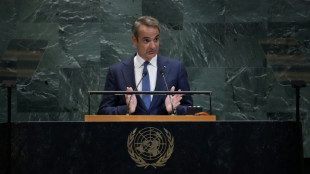
-
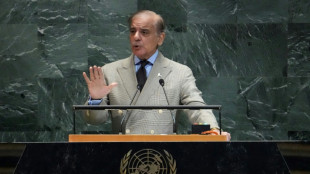 Pakistani PM appeals for India talks, hails Trump role
Pakistani PM appeals for India talks, hails Trump role
-
Trump aims to make America great again amid Ryder Cup woes
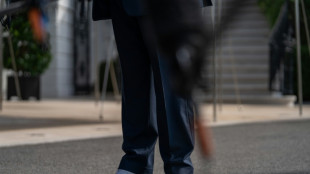
-
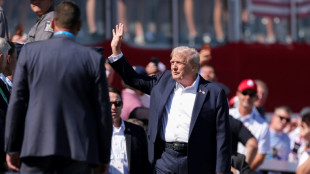 Trump arrives at Ryder Cup with US seeking comeback
Trump arrives at Ryder Cup with US seeking comeback
-
Europe grabs 3-1 lead as US seeks Trump boost at Ryder Cup
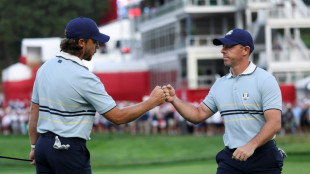
-
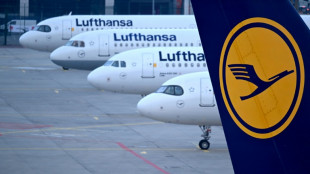 Lufthansa planning thousands of job cuts: sources
Lufthansa planning thousands of job cuts: sources
-
China at UN warns of return to 'Cold War mentality'
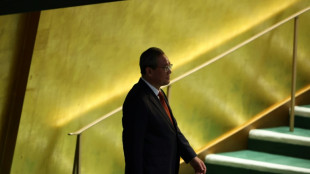
-
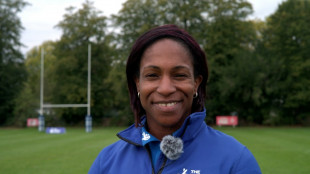 England great Alphonsi expects Canada to shine in Women's Rugby World Cup final
England great Alphonsi expects Canada to shine in Women's Rugby World Cup final
-
Tottenham reject interest in reported record £4.5bn sale

-
 Man Utd boss Amorim admits uncertainty ahead of Brentford clash
Man Utd boss Amorim admits uncertainty ahead of Brentford clash
-
Zverev wins Beijing opener as Gauff launches title defence
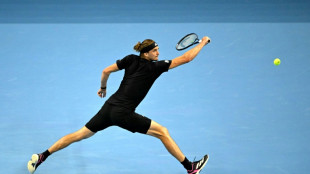
-
 Barca duo Raphinha, Joan Garcia injured, out for PSG clash
Barca duo Raphinha, Joan Garcia injured, out for PSG clash
-
Trump hopes more opponents to be charged after 'dirty cop' Comey
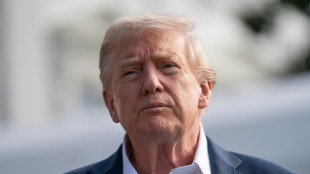
-
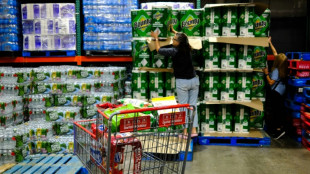 US Fed's preferred inflation gauge rises, with more cost pressures expected
US Fed's preferred inflation gauge rises, with more cost pressures expected
-
Facebook, Instagram to offer paid ad-free UK subscriptions

-
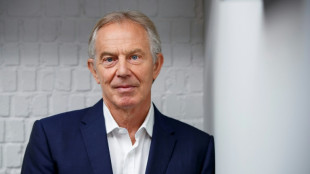 Former UK PM Blair could lead transitional authority in Gaza: reports
Former UK PM Blair could lead transitional authority in Gaza: reports
-
Netanyahu says Palestinian state would be 'national suicide' for Israel
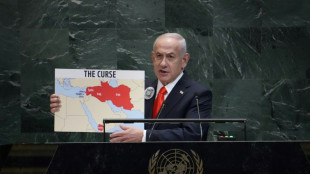
-
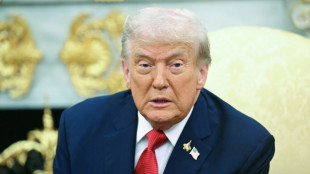 The nations and firms threatened by Trump's pharma tariffs
The nations and firms threatened by Trump's pharma tariffs
-
Trailblazing rugby chief Griffin proud of 'incredible' strides for women's game

-
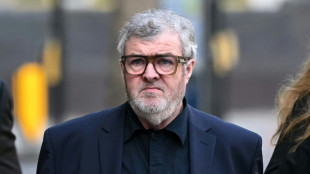 Brother of Oasis stars denies rape, other charges
Brother of Oasis stars denies rape, other charges
-
EU steps up 'drone wall' plans after Russian incursions
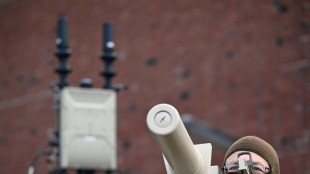
-
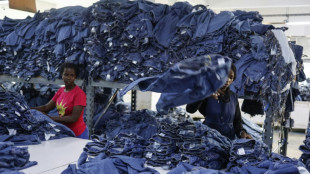 Kenyan jeans factory to fire workers as US deal expires
Kenyan jeans factory to fire workers as US deal expires
-
Arteta hails Saliba's impact as new Arsenal deal looms
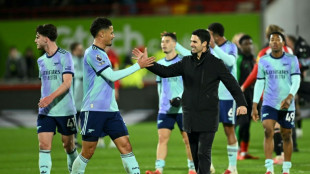
-
 England's Jones channels grief in bid for Women's Rugby World Cup glory
England's Jones channels grief in bid for Women's Rugby World Cup glory
-
UN identifies 158 firms linked to Israeli settlements
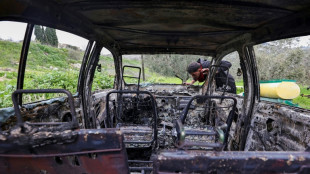
-
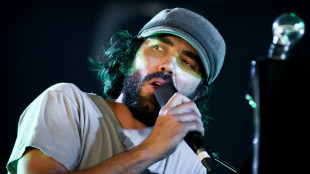 Canada's Patrick Watson channels dread into new 'Uh Oh' album
Canada's Patrick Watson channels dread into new 'Uh Oh' album
-
Trump brands indicted opponent Comey a 'dirty cop'
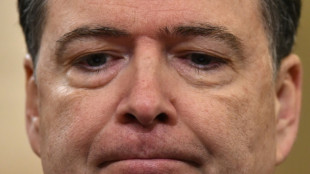
-
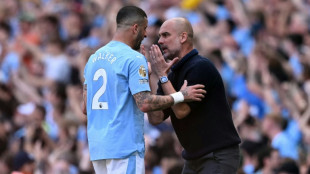 Walker an all-time great, says Guardiola ahead of Man City return
Walker an all-time great, says Guardiola ahead of Man City return
-
Alonso warns against overconfidence before Madrid derby

-
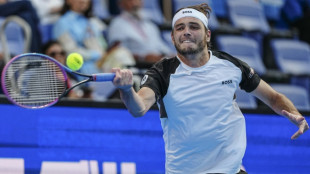 Fritz says path to Grand Slam glory goes through Alcaraz, Sinner
Fritz says path to Grand Slam glory goes through Alcaraz, Sinner
-
UK court drops terror case against Kneecap rapper
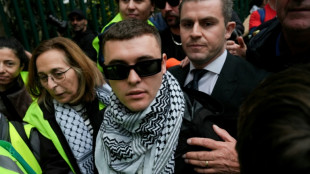
-
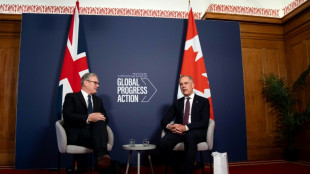 UK's Starmer urges liberals to fight 'the lies' told by far right
UK's Starmer urges liberals to fight 'the lies' told by far right
-
Bagnaia and Pennetta among first Winter Olympic torch carriers: organisers
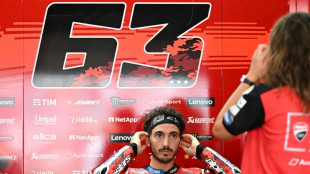
-
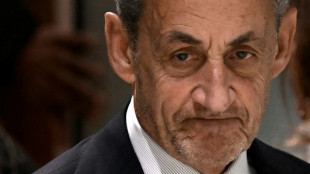 Sarkozy conviction exposes political divide in crisis-hit France
Sarkozy conviction exposes political divide in crisis-hit France
-
Ryder Cup begins in electric atmosphere at Bethpage Black
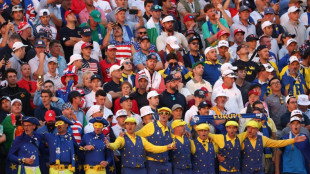
-
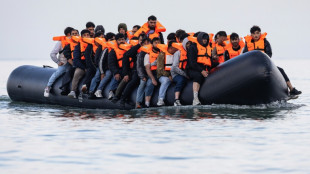 UK to launch digital ID scheme to curb illegal migration
UK to launch digital ID scheme to curb illegal migration
-
Chelsea's Palmer sidelined with groin injury

-
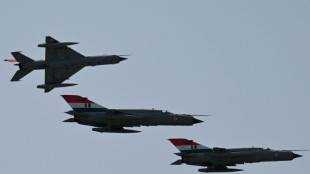 India retires Soviet fighter jet after six decades
India retires Soviet fighter jet after six decades
-
Slovak parliament approves anti-LGBTQ constitutional change
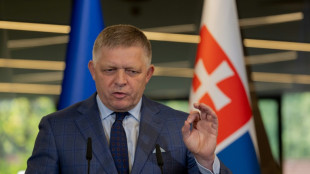
-
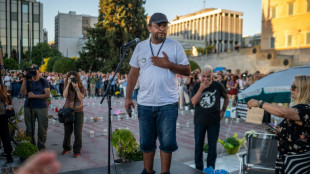 Train tragedy hunger striker captures hearts in Greece
Train tragedy hunger striker captures hearts in Greece
-
I.Coast historic beachside town boasts new modern art museum
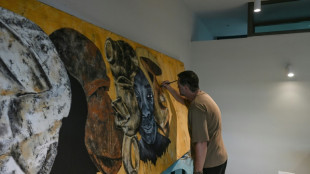

Taiwan's entrepreneurs in China feel heat from cross-Strait tensions
Bustling Taipei-style shopping streets, majestic temples to the island's deities and thriving factories dot the eastern Chinese city of Kunshan, for years a hub for Taiwanese businesses.
But now those firms are feeling the strain from cross-Strait tensions that have stoked safety fears among companies.
Taiwanese entrepreneurs -- known as "Taishang" in Mandarin -- poured billions into mainland China since ties began improving in the 1990s, playing an important role in its rise to become the world's second-largest economy.
But their numbers have dwindled in recent years, with the number of Taiwanese working in China dropping from 409,000 in 2009 to 177,000 in 2022, according to estimates provided to AFP by the Straits Exchange Foundation, an unofficial intermediary between Taipei and Beijing.
China's economic slowdown and mounting trade tensions with Washington are partially responsible, the organisation says.
But James Lee, a 78-year-old Taiwanese industrialist who was forced to close his cable and electrical outlet factory in southern Guangdong province in 2022, blames "politics".
"You have to be very careful when you speak," Lee told AFP.
"We Taiwanese businessmen are afraid."
Bolstered by their mastery of Mandarin and business acumen, Taishang have prospered as wily intermediaries between international markets and China's vast industrial manufacturing base.
Perhaps the most famous of them is Terry Gou, the founder of Foxconn whose vast factories in China churn out iPhones that have helped make it the world's biggest contract electronics manufacturer.
- No guarantee of safety -
An hour's drive from economic powerhouse Shanghai, Kunshan has been a key hub for Taiwanese-owned industry in China since the 1990s.
"Back then, it was a rice field," recalls Annie Wang, an industrialist from the island who arrived in Kunshan in 1996.
"Taiwanese companies were fortunate to coincide with the 30 most glorious years of Chinese manufacturing," she said.
Now, Wang heads an electronics subcontracting manufacturing plant, a small technology park and a coffee utensil brand.
At the height of the boom, Kunshan was home to more than 100,000 Taiwanese, according to unofficial figures from local associations.
But the number of Taiwanese companies in the city has shrunk from more than 10,000 a decade ago to fewer than 5,000 today, according to the data.
And the Taishang have felt the squeeze as relations between Taipei and Beijing plunge to their lowest depths in years.
The Chinese Communist Party -- which claims Taiwan as its territory but has never controlled it -- has hardened its stance against alleged "Taiwanese independence activists", even calling for the death penalty for alleged secessionism.
New rules, which also encourage citizens to report alleged pro-independence activities, have had a chilling effect on Taiwanese businesses in mainland China.
"We are not sending Taiwanese employees (to China) because we don't know how to guarantee their safety," said industrialist Lee.
"The initial favourable conditions have disappeared, and now there are many additional risks," Luo Wen-jia, vice chairman of the Straits Exchange Foundation, told AFP.
China's economic woes and rising production costs are adding to the problems.
"When we first went there, we thought that China's economy would continue to improve because its market is so large and its population is so big," Leon Chen, a Taiwanese businessman who worked at a battery component factory in the southeastern province of Jiangxi, said.
"But we haven't seen this materialise because there are some issues -- there is the US-China trade war and there was the pandemic," he added.
- Caught in crossfire -
In response, Taiwanese manufacturers are turning to new, more profitable -- and less politically sensitive -- locales.
"Some went to Vietnam, and some went to Thailand, Indonesia and the Philippines, and some returned to Taiwan," Luo said.
Between 2016 and 2024, Taiwanese investments in Vietnam approved by the Ministry of Economic Affairs in Taipei soared 129 percent, from US$451 million to more than US$1 billion.
Over the same period, those to mainland China fell 62 percent, according to the same source.
This decline could deal a blow to Beijing's "united front" strategy, which has seen it lean on Taishang communities to promote Taiwan's political integration and, ultimately, unification.
And as Beijing launches military drills practising a blockade of Taiwan and Taipei cracks down on Chinese spies, Taishang risk being caught in the crossfire.
In October 2023, Foxconn was placed under investigation by Chinese authorities -- a move widely seen as linked to a bid for the Taiwan presidency by its founder.
"There is no way to compare it with the heyday but we can still make ends meet," said Chen.
"If the environment for doing business in China becomes worse and worse, we would have no choice but to leave."
P.Keller--VB
